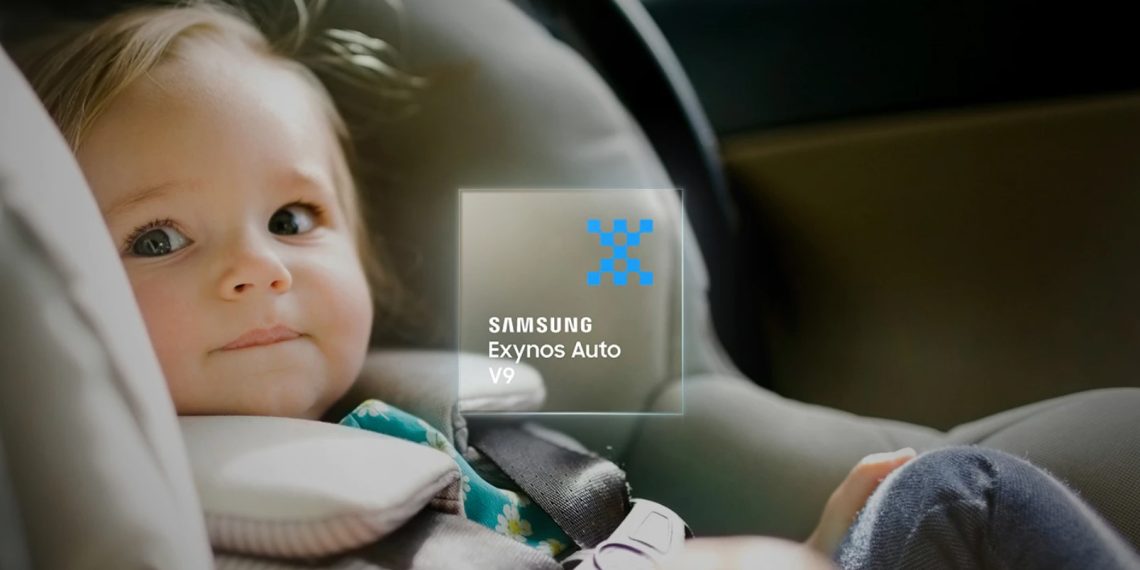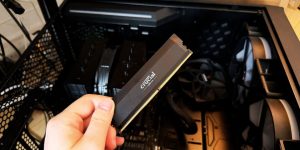In a rapidly evolving automotive industry, cars are transforming into sophisticated machines with computer-like capabilities. Recognizing this shift, technology giant Samsung has recently unveiled its cutting-edge Exynos Auto V920 chip, set to empower Hyundai cars starting in 2025. This collaboration marks a significant milestone in the automotive sector, as it combines the expertise of two industry leaders to bring next-generation features to the driving experience.
Samsung’s Exynos Auto V920: Fueling the Future of Hyundai Cars
Samsung and Hyundai have joined forces to spearhead the development of next-generation electric vehicle (EV) technologies. Under this strategic alliance, Samsung will provide its Exynos processors for integration into Hyundai’s EVs. While Exynos processors have long been used in smartphones and tablets, Samsung has specifically developed the Exynos Auto V920 chip to cater to the unique demands of EVs. This advanced chip will power Hyundai’s future infotainment systems and drive its advanced driving assistance features.
![]()
The Exynos Auto V920 boasts an impressive array of capabilities designed to meet the requirements of modern vehicles. Equipped with a 10-core CPU, a powerful GPU, and a Neural Processing Unit (NPU), it possesses the computational prowess needed to handle advanced driving assistance functions seamlessly. The chip’s efficient architecture enables smooth and responsive performance, enhancing the overall driving experience.
Additionally, the chip supports up to six high-resolution displays and up to 12 camera sensors, providing an immersive and comprehensive view of the vehicle’s surroundings. This enables advanced driver-assistance systems (ADAS) to accurately detect and analyze the environment, enhancing safety and enabling features such as lane-keeping assistance, adaptive cruise control, and collision avoidance.
Compared to its predecessor, the V920 represents a significant leap in performance. With a CPU that is 1.7 times faster, a GPU that is twice as fast, and an NPU that is 2.7 times faster, Hyundai drivers can expect a more responsive and immersive infotainment experience. From interactive touchscreens to seamless connectivity, the Exynos Auto V920 enables intuitive control and access to a wide range of entertainment and communication features, making every journey enjoyable and connected.
Furthermore, the chip’s ASIL-B (Automotive Safety Integrity Level B) compliance ensures that it adheres to the strictest safety standards, aligning with Hyundai’s commitment to delivering safe and reliable vehicles. The V920’s design includes comprehensive safety features to protect against potential hazards, ensuring that both the vehicle and its occupants are safeguarded at all times.
The Introduction of the Exynos Auto V920: A Game-Changer for Samsung and Hyundai The advent of the V920 chip highlights Samsung’s serious foray into the automotive market, showcasing its dedication to providing cutting-edge solutions for the industry. For Hyundai, this collaboration equips them with a formidable chip that can differentiate their vehicles and enhance their competitive edge. By integrating the Exynos Auto V920 chip into their electric vehicles, Hyundai can deliver an unparalleled driving experience that seamlessly blends advanced technology with utmost safety and performance.
The Exynos Auto V920 chip will enable Hyundai to offer state-of-the-art infotainment systems, incorporating features such as high-resolution displays, advanced voice control, and seamless smartphone integration. Drivers and passengers will enjoy a connected and immersive environment, where they can access their favorite apps, stream media, and stay connected on the go.
Furthermore, the advanced driving assistance features powered by the V920 chip will elevate the level of safety and convenience on the road. Hyundai’s EVs will benefit from intelligent features such as autonomous emergency braking, blind-spot monitoring, smart parking assistance, and advanced navigation systems. With the Exynos Auto V920 chip as the technological backbone, Hyundai cars will offer a superior driving experience, enhancing both safety and comfort.
The Exynos Auto V920 is set to make its debut in Hyundai cars in 2025, propelling the company into the forefront of automotive innovation. As the automotive industry continues to evolve, this collaboration between Samsung and Hyundai sets the stage for a future where smart mobility seamlessly integrates with automotive excellence. With the power of Samsung’s advanced chip technology and Hyundai’s commitment to innovation, the possibilities for transforming the driving experience are boundless. Together, they are driving the future of automotive technology, revolutionizing the way we interact with our vehicles and redefining the concept of mobility.













































































































































































